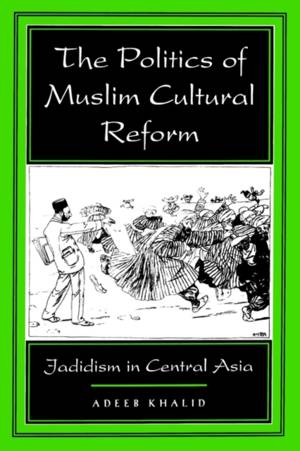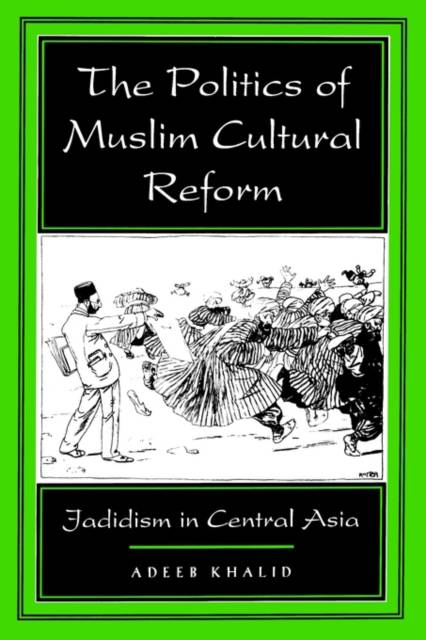
Je cadeautjes zeker op tijd in huis hebben voor de feestdagen? Kom langs in onze winkels en vind het perfecte geschenk!
- Afhalen na 1 uur in een winkel met voorraad
- Gratis thuislevering in België vanaf € 30
- Ruim aanbod met 7 miljoen producten
Je cadeautjes zeker op tijd in huis hebben voor de feestdagen? Kom langs in onze winkels en vind het perfecte geschenk!
- Afhalen na 1 uur in een winkel met voorraad
- Gratis thuislevering in België vanaf € 30
- Ruim aanbod met 7 miljoen producten
Zoeken
€ 57,95
+ 115 punten
Omschrijving
Adeeb Khalid offers the first extended examination of cultural debates in Central Asia during Russian rule. With the Russian conquest in the 1860s and 1870s the region came into contact with modernity. The Jadids, influential Muslim intellectuals, sought to safeguard the indigenous Islamic culture by adapting it to the modern state. Through education, literacy, use of the press and by maintaining close ties with Islamic intellectuals from the Ottoman empire to India, the Jadids established a place for their traditions not only within the changing culture of their own land but also within the larger modern Islamic world.
Khalid uses previously untapped literary sources from Uzbek and Tajik as well as archival materials from Uzbekistan, Russia, Britain, and France to explore Russia's role as a colonial power and the politics of Islamic reform movements. He shows how Jadid efforts paralleled developments elsewhere in the world and at the same time provides a social history of the Jadid movement. By including a comparative study of Muslim societies, examining indigenous intellectual life under colonialism, and investigating how knowledge was disseminated in the early modern period, The Politics of Muslim Cultural Reform does much to remedy the dearth of scholarship on this important period. Interest in Central Asia is growing as a result of the breakup of the former Soviet Union, and Khalid's book will make an important contribution to current debates over political and cultural autonomy in the region.
Khalid uses previously untapped literary sources from Uzbek and Tajik as well as archival materials from Uzbekistan, Russia, Britain, and France to explore Russia's role as a colonial power and the politics of Islamic reform movements. He shows how Jadid efforts paralleled developments elsewhere in the world and at the same time provides a social history of the Jadid movement. By including a comparative study of Muslim societies, examining indigenous intellectual life under colonialism, and investigating how knowledge was disseminated in the early modern period, The Politics of Muslim Cultural Reform does much to remedy the dearth of scholarship on this important period. Interest in Central Asia is growing as a result of the breakup of the former Soviet Union, and Khalid's book will make an important contribution to current debates over political and cultural autonomy in the region.
Specificaties
Betrokkenen
- Auteur(s):
- Uitgeverij:
Inhoud
- Aantal bladzijden:
- 400
- Taal:
- Engels
- Reeks:
- Reeksnummer:
- nr. 27
Eigenschappen
- Productcode (EAN):
- 9780520213562
- Verschijningsdatum:
- 1/01/1999
- Uitvoering:
- Paperback
- Formaat:
- Trade paperback (VS)
- Afmetingen:
- 155 mm x 230 mm
- Gewicht:
- 498 g

Alleen bij Standaard Boekhandel
+ 115 punten op je klantenkaart van Standaard Boekhandel
Beoordelingen
We publiceren alleen reviews die voldoen aan de voorwaarden voor reviews. Bekijk onze voorwaarden voor reviews.









